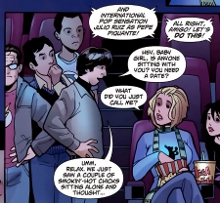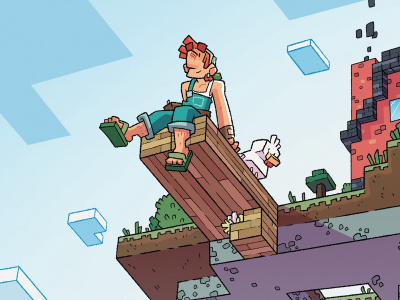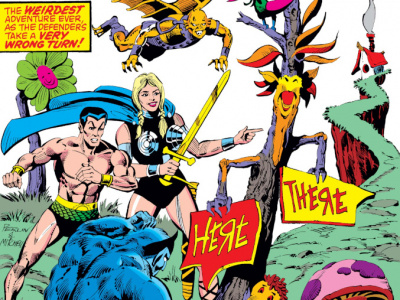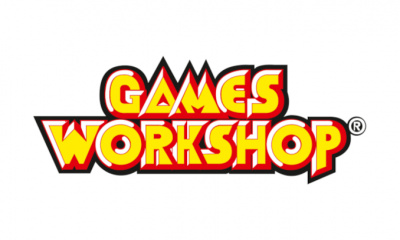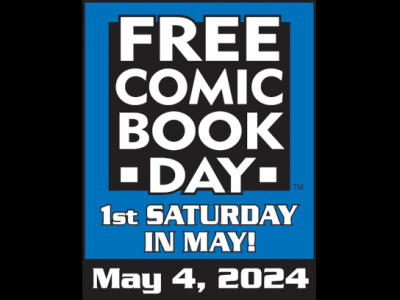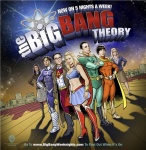 Confessions of a Comic Book Guy is a weekly column by Steve Bennett of Super-Fly Comics and Games in Yellow Springs, Ohio. This week, Bennett deconstructs The Big Bang Theory and its handling of comic store culture.
Confessions of a Comic Book Guy is a weekly column by Steve Bennett of Super-Fly Comics and Games in Yellow Springs, Ohio. This week, Bennett deconstructs The Big Bang Theory and its handling of comic store culture.I honestly didn't think that much of it at the time but last month when I went into Super-Fly Comics & Games I needed bags and boards and found they were out, "Except for these," owner Tony Barry said, pointing to some new arrivals. On one side they featured the Justice League by Jim Lee and on the other the cast of the sitcom The Big Bang Theory, most of who were in superhero garb. I recognized these as a DC/Warner bros. cross-promotion to "celebrate" the shows recent entry into syndication. Through inference Tony made it clear the preferred way to use them was with the Justice League side exposed.
The Big Bang Theory is such a runaway success that even if you've never seen an episode you probably know it's about Sheldon and Leonard, a pair of physicist fanboy roommates whose lives change when a pretty woman moves in across the hall. Along with being, for some reason, the #1 show in Canada, it's incredibly popular in Japan where the premise particularly seems to resonate, or as one Japanese Website put it "Otaku fall in love with beauty, even the field will certainly hilarious!"
For the most part I've always thought that it did a pretty good job of depicting nerd culture, especially when it comes to their comic shop and its owner, Stuart (who "for financial reasons" is currently living in his shop). In the episode "The Justice League Recombination" when someone is told he owns the store they remark, "Wow, lucky you." To which Stuart responds, "Yeah, I work 70 hours a week and average $1.65 an hour," which jibes fairly closely to my own experience running a comic book shop.
But I must admit that two weeks ago I cringed when they aired the episode "The Good Guy Fluctuation" where the entire comic book shop is stunned into silence when (*gasp*) a good looking woman shows up on new comic book day. It feeds on one of the most pernicious and inaccurate stereotypes about comic shops (i.e. it's "The Ugly Boy Store"), and making it even more egregious it reminded me this wasn’t the first time the show had invoked this trope. In an early episode, "The Hofstadter Isotope" the exact thing happened when their neighbor Penny accompanied the boys to the store.
The next time I went to Super-Fly comics I had forgotten about the whole thing, until I saw the store had the custom customer bags featuring the same DC/Big Bang Theory promotional art as the backing boards. So I told Tony and store charge d'affaires Jared Whittaker about the most recent episode and they (and I am not exaggerating) literally howled. After which they explained that they hated The Big Bang Theory; really, really hated it.
The reasons they gave were that the show was "bland, generic and commercialized," that it doesn't do nerd culture justice, and that the characters were "(largely) caricatures -- shallow archetypes." But probably most damning was both Tony and Jared's confession that apparently civilians had been coming into the store and exclaiming "Oh! You’re just like Sheldon!" I could empathize -- I consider myself incredibly lucky that no one (to my face anyway) ever compared me to Jeff Albertson, The Comic Book Guy from The Simpsons when I was working retail.
But I was especially impressed by Tony's final argument:
"The unfortunate reality, for me, is that all too often I feel that these cheap laughs are directed AT me and my lifestyle choices rather than WITH. This, then, causes me to feel as if the whole thing is misappropriating the culture rather than elevating it."
You can't argue over funny; you either find something funny or you don't, and I, personally, find it funny. But thanks to syndication, I see Tony and Jared have a point; one of the major problems with the show's first season was that the producers clearly thought it was funny to place the nerds way out of their comfort zone. With results which weren’t so much comic but painfully humiliating.
They've corrected this by instead of having them venturing out into the "normal" world sending 'civilian' characters into theirs, actual female women-type people who like and respect the guys but who have zero interest in their fannish pursuits. Which I'm sure reflects the reality of a lot of our lives.
I really can't argue that Sheldon and Leonard aren't stereotypes, but given the way a vast international audience has managed to sympathize and empathize with them it suggests there's something universally likable about these slightly creepy outsiders. In a recent episode Penny referred to their friend Wolowitz as a "broken toy," which The Urban Dictionary defines as "a person who has childhood, past relationship or other emotional damage that makes them broken and unable to be part of a healthy relationship."
But it's really true for all of them, and a lot of us, and I suppose if I wanted to be absolutely honest ultimately the reason I like TBBT is it shows against all odds the triumph (okay, survival) of a profoundly damaged band of brothers who in spite of all likelihood not only manage to function but draw support and acceptance from each other. The Brotherhood of Broken Toys.
The opinions expressed in this column are solely those of the writer, and do not necessarily reflect the views of the editorial staff of ICv2.com.



